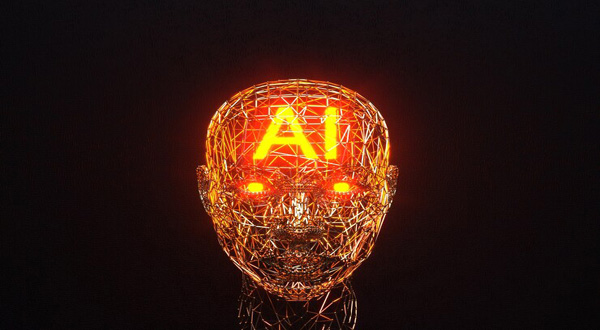The Advantages and Disadvantages of Artificial Intelligence
- Update Time : Monday, March 11, 2024
- 14 Time View

The Advantages and Disadvantages of Artificial Intelligence: Artificial Intelligence (AI) has become a buzzword in today’s world, impacting various aspects of our lives. From smart assistants to autonomous vehicles, AI has found its way into numerous industries. But what exactly are the advantages and disadvantages of this rapidly advancing technology? Let’s delve into the intricacies and explore how AI is shaping our world.
Table of Contents
| Sr | Headings |
| — | ——————————————– |
| 1 | Introduction |
| 2 | Advantages of Artificial Intelligence |
| 3 | Disadvantages of Artificial Intelligence |
| 4 | Impact on Employment |
| 5 | Ethical Considerations |
| 6 | Healthcare Revolution |
| 7 | Improved Efficiency in Industries |
| 8 | Data Privacy Concerns |
| 9 | Education Transformation |
| 10 | Environmental Implications |
| 11 | Conclusion |
| 12 | FAQs
Introduction
Artificial Intelligence, commonly known as AI, has revolutionized the way we interact with technology. From virtual assistants like Siri and Alexa to complex algorithms powering self-driving cars, AI has become an integral part of our daily lives. However, with its rapid advancements come both advantages and disadvantages that deserve careful consideration.
Advantages of Artificial Intelligence
- Increased Efficiency: AI streamlines processes, leading to increased efficiency and productivity in various industries.
- Enhanced Accuracy: AI algorithms can perform repetitive tasks with precision, minimizing errors and improving overall accuracy.
- Cost Reduction: By automating tasks, AI can significantly reduce operational costs for businesses, leading to higher profits.
- Innovation Catalyst: AI fosters innovation by enabling the development of advanced technologies such as autonomous vehicles and smart devices.
- Improved Healthcare: AI-powered medical diagnostics and treatment planning enhance patient care and outcomes, saving lives.
Disadvantages of Artificial Intelligence
- Job Displacement: Automation driven by AI could lead to job displacement, particularly in industries reliant on manual labor.
- Bias and Discrimination: AI algorithms may perpetuate biases present in data, leading to discriminatory outcomes, especially in areas like hiring and lending.
- Privacy Concerns: The vast amount of data processed by AI systems raises concerns about data privacy and security breaches.
- Lack of Creativity: While AI excels at tasks with clear rules and objectives, it lacks the creativity and emotional intelligence of humans.
- Dependency Risks: Overreliance on AI systems without proper safeguards can lead to catastrophic failures and dependency risks.
Impact on Employment
The widespread adoption of AI is reshaping the job market, with some roles becoming obsolete while others emerge. While AI creates new opportunities in fields like data science and AI development, it also raises concerns about job displacement in traditional sectors.
Read More: Unlocking the Power of Artificial Intelligence: 10 Benefits for You
Ethical Considerations
Ethical considerations surrounding AI involve issues such as bias in algorithms, accountability for AI-driven decisions, and the impact of AI on society. It’s crucial to address these ethical concerns to ensure AI benefits humanity without compromising fundamental values.
Healthcare Revolution
AI is revolutionizing healthcare by enabling early disease detection, personalized treatment plans, and medical image analysis. From predicting patient outcomes to drug discovery, AI is transforming the healthcare landscape, ultimately improving patient care and saving lives.
Improved Efficiency in Industries
AI-driven automation enhances efficiency and productivity across various industries, from manufacturing to finance. By optimizing processes and reducing human error, AI empowers businesses to operate more efficiently and competitively in the global market.
Data Privacy Concerns
The proliferation of AI technologies raises concerns about data privacy and security. With AI systems collecting and analyzing vast amounts of personal data, there’s a growing need for robust data protection measures and regulations to safeguard individuals’ privacy rights.
Education Transformation
AI has the potential to transform education by personalizing learning experiences, automating administrative tasks, and providing real-time feedback to students. By adapting to individual learning styles, AI-driven educational tools can enhance student engagement and improve learning outcomes.
Environmental Implications
AI can play a crucial role in addressing environmental challenges by optimizing resource management, predicting natural disasters, and monitoring climate change. However, the environmental impact of AI itself, particularly in terms of energy consumption, warrants careful consideration and sustainable practices.
Read More: The Advantages of Artificial Intelligence for Students
Conclusion
Artificial Intelligence presents a myriad of opportunities and challenges for society. While it enhances efficiency, innovation, and healthcare, it also raises concerns about job displacement, bias, and privacy. It’s imperative to harness the benefits of AI while addressing its ethical, social, and environmental implications to create a future where AI serves humanity responsibly.
FAQs
- How does AI impact job opportunities?
AI can create new job opportunities in emerging fields like data science and AI development while potentially displacing traditional roles through automation.
- Are AI algorithms biased?
AI algorithms can exhibit bias if trained on biased data, leading to discriminatory outcomes in areas such as hiring and lending.
- What are the privacy concerns associated with AI?
The vast amount of personal data processed by AI systems raises concerns about data privacy, security breaches, and unauthorized access.
- Can AI systems be creative?
While AI excels at tasks with clear rules and objectives, it lacks the creativity and emotional intelligence of humans.
- How can AI contribute to environmental sustainability?
AI can contribute to environmental sustainability by optimizing resource management, predicting natural disasters, and monitoring climate change. However, its own environmental impact, particularly in terms of energy consumption, requires sustainable practices.
Artificial Intelligence continues to shape our world in profound ways, presenting both opportunities and challenges that require careful consideration and ethical oversight. As we navigate the AI-driven future, it’s essential to prioritize responsible AI development and deployment to ensure a positive impact on society and the environment.












